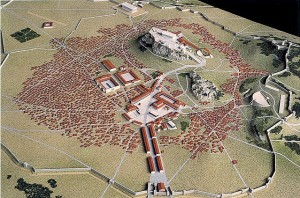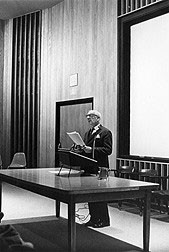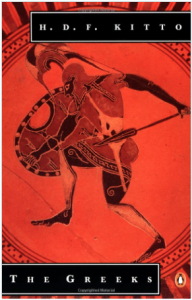By H.D.F Kitto
“The city-state was the means by which the Greek consciously strove to make the life both of the community and of the individual more excellent than it was before.”
Author’s Introduction:
Humphrey Davey Findley Kitto (6 February 1897 – 21 January 1982) was a British classical scholar of cornish ancestry. He was born in Stroud, Gloucestershire. He was educated at The crypt school, Gloucester, and St. John’s College, Cambridge. He wrote his doctorate in 1920 at the University of Bristol. He became a Lecturer in Greek at the University of Glasgow from 1920 to 1944. On that year, he returned to the University of Bristol where he became Professor of Greek and emeritus in 1962. He concentrated on studies of Greek tragedy, producing also translations of works of Sophocles. His 1952 general treatment The Greeks [1] covered the whole range of ancient Greek culture, and became a standard text.
[1]
Date: 1951
Period: Modernization
Summary: More Than a City-State
For the Greeks, the inhabited, ‘civilized’ world had certain essential features: the use of Greek language, a recognizable religion giving offerings to the gods, and a host of civic customs and institutions summed up in the notion of the polis, the Greek city-state. It included the idea of a centrally organized place where social life was carried out publicly before the human community and the gods. It evolved in some cases to include ideas of citizenship whereby most adult males were recognized as part of the polity and had both obligations and rights. It often included the use of a central agora, or market place, the use of gymnasia for general education, athletics, and military training, and most poleis (plural of polis) also had a central citadel or defensible area near the main city.

[2]
The physical form of the polis (Athens) stressed public spaces; private houses away from the street. In contrast, emphasized public temples, stadiums and the agora.
For more information Click Here
References:
(1) Stout, Fredric, and Richard LeGates. The City Reader. 5th ed. 351-362. Print.
Additional Reference:
(2)The Greeks (Chicago: Aldine Publishing Company, 1957 [1951]), pp. 64–79. Retrieved 23 Mar. 2014. <http://www.sagepub.com/upm-data/34064_Davies~Vol_1_Ch_01.pdf>.
(3) Ferguson, J. The Polis, The City-State and Urban Life. 1998. Retrieved 23 Mar. 2014. <http://www.international-relations.com/History/Polis.pdf>.
(3) Voegelin, E. Athens a History of 8000 Years. 2000. Retrieved 27 Mar. 2014. < http://www.skyscrapercity.com/showthread.php?t=672156>.
Done by Fatma Fakhroo


